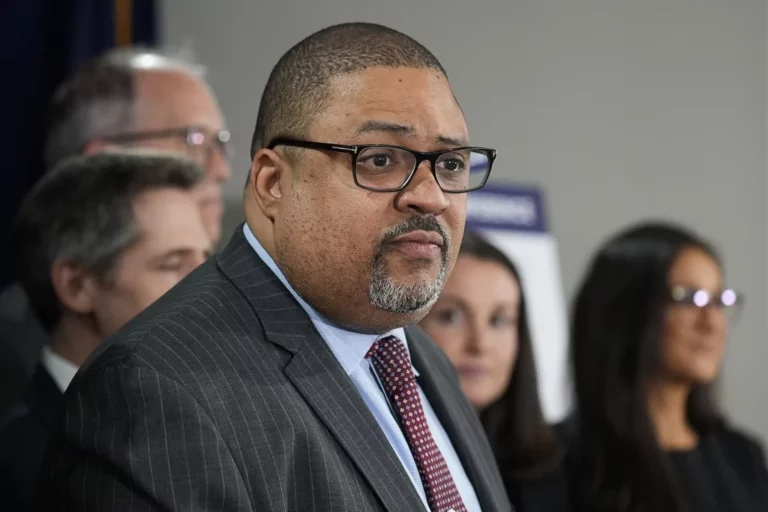
Manhattan District Attorney Alvin Bragg on Thursday called on the Supreme Court to reject President-elect Donald Trump’s last-minute bid to postpone his sentencing in the New York hush money case.
The legal scramble came as Trump is set to be sentenced Friday, just days before his inauguration. While the New York judge overseeing the case has signaled Trump will not face jail time, the sentencing marks a historic moment following his felony conviction.

“The defendant makes the unprecedented claim that the temporary presidential immunity he will possess in the future fully immunizes him now, weeks before he even takes the oath of office,” Bragg’s office wrote.
Bragg, the Democratic Manhattan district attorney who revived the case after his predecessor dropped the investigation, called the president-elect’s argument “unprecedented.” He dismissed Trump’s claim that presidential immunity, which he will gain upon inauguration, should apply before taking office, arguing that such immunity is limited to a president’s time in office and does not extend retroactively.
However, some legal experts say Trump’s legal position rests on firm ground, such as former federal prosecutor Jonathan Fahey, who told the Washington Examiner he believes the Supreme Court could stay the sentencing and subsequently weigh the matter in an emergency session.
Fahey pointed to numerous examples in which the president-elect argued that certain witness testimony during the May 2023 trial should not have been made to the jury, such as when former White House communications director Hope Hicks was called to the stand to testify about events that took place while Trump was in his first term in office.
Fahey said the testimony from Hicks involved her time in the Oval Office “while she was an aide,” noting that trial Judge Juan Merchan found her inclusion to be a “harmless error” to the jury’s ultimate guilty findings. However, Fahey questioned how it could be harmless when prosecutors made Hicks’s account a “core of [their] closing argument.”
Bragg argued that any trial errors can be addressed once Trump begins to appeal the guilty verdict against him, which cannot begin until after sentencing.
If the justices do not side with Trump’s request to halt sentencing, Trump may attempt to take a collateral approach to his appeal by filing a writ of habeas corpus, which Fahey said would presumably head to the U.S. Court of Appeals for the 2nd Circuit, and could result in an appeal once more to the justices.
If Trump is not sentenced by next Friday, questions remain as to whether he will have a hearing, given that his inauguration will commence on Jan. 20.
Just before prosecutors submitted their arguments to the nine justices in Washington, D.C., the New York Court of Appeals issued a brief order denying Trump’s parallel appeal to stay his sentencing.
CLICK HERE TO READ MORE FROM THE WASHINGTON EXAMINER
Trump has repeatedly cited the Supreme Court’s ruling last summer in Trump v. United States, which reaffirmed presidential immunity for “official acts,” in his attempts to delay or overturn the legal proceedings.
Despite these efforts, Trump remains on track to receive his sentence after a jury found him guilty in May of 34 felony counts for falsifying business records to conceal a hush money payment to porn star Stormy Daniels in the run-up to the 2016 campaign.







